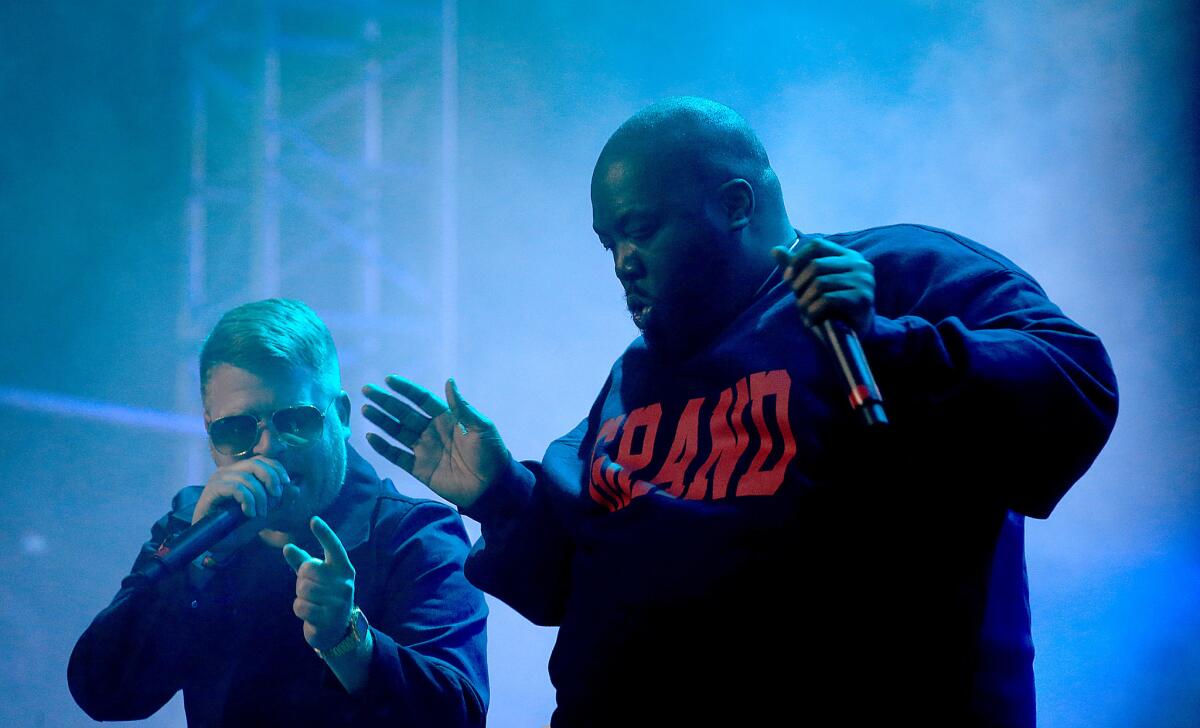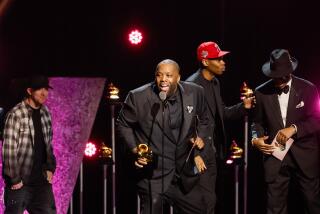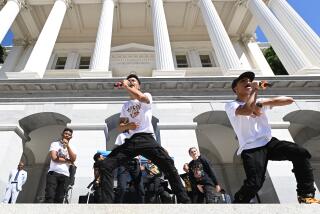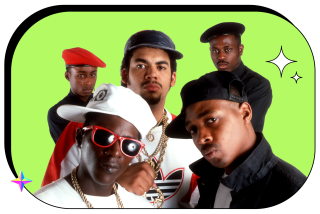Prince, Ice Cube and Killer Mike speak for justice in Baltimore

- Share via
The death of Freddie Gray while in police custody, and the ensuing unrest surrounding it, has prompted another round of musicians to speak out on the value of black lives and on racial issues in America.
Prince’s representatives confirmed Friday that the once-enigmatic star will dedicate his forthcoming song “Baltimore” to the people of the city where Gray died. The track, which does not have a release date yet, will address various social justice issues, including the disproportionate killing of young black men in America.
At the Grammy awards in February, Prince invoked the protest slogan “Black Lives Matter” while onstage as a presenter, adding his voice to the ongoing protests sparked by the killings of unarmed black men in Ferguson and Staten Island by law enforcement last year.
Since the slaying of Trayvon Martin in 2012, rappers and other music artists such as John Legend, Common and J. Cole have become more vocal about the need to reform a system that disproportionately finds people of color the victims of poverty, crime and what many see as an unequal justice system.
Veteran rapper-turned-comedic actor Ice Cube recently tweeted out eerily similar photos of riots in Baltimore circa 1960s, and photos from today’s unrest, with the caption “Then and now.”
Perhaps one of the most outspoken critics, however, has been Killer Mike, who has written another op-ed in Billboard about the crisis in Baltimore. The Run the Jewels rapper published his piece, the second he’s written on the topic of racial injustice for Billboard, on the heels of the White House Correspondents’ Assn. dinner, which he attended at the invitation of Arianna Huffington.
“I tweeted and Instagrammed so my fans could share this incredible night -- and as I followed social media, I saw that Baltimore was burning,” he wrote. “As I sat there and watched my timeline, I felt helpless, hopeless: ‘Here I am at this lavish event -- the most powerful man in the world is black, and people like him are being killed by the citizens who are paid to protect them.’ I left the dinner numb.”
He goes on to talk about the unfair coverage the protesters in Baltimore received from the likes of Geraldo Rivera and Wolf Blitzer, “because they’re players in the game that sensationalizes and objectifies this in the worst ways -- I don’t trust ... that they want to see the change,” he wrote.
“For the people of Baltimore,” he continued, “I don’t criticize rioting because I understand it. But after the fires die down: organize, strategize and mobilize. Like Ferguson, you have an opportunity to start anew. I don’t have a solution because whoever’s there will have to come up with it. But we need community relations: riots are the language of the unheard.
“I’m grateful to have been invited to the dinner, and Sway let me know how important it was that we both were there, representing hip-hop,” he concluded. “But as I got into the car at the night’s end, and the driver played ‘Pressure,’ a song by me and Ice Cube, I could not help but wonder if this country will ever truly be what is promised in our Constitution for people who look like me.”
Follow @PopHiss and @LorraineAli on Twitter for more music and entertainment news.
More to Read
The biggest entertainment stories
Get our big stories about Hollywood, film, television, music, arts, culture and more right in your inbox as soon as they publish.
You may occasionally receive promotional content from the Los Angeles Times.











